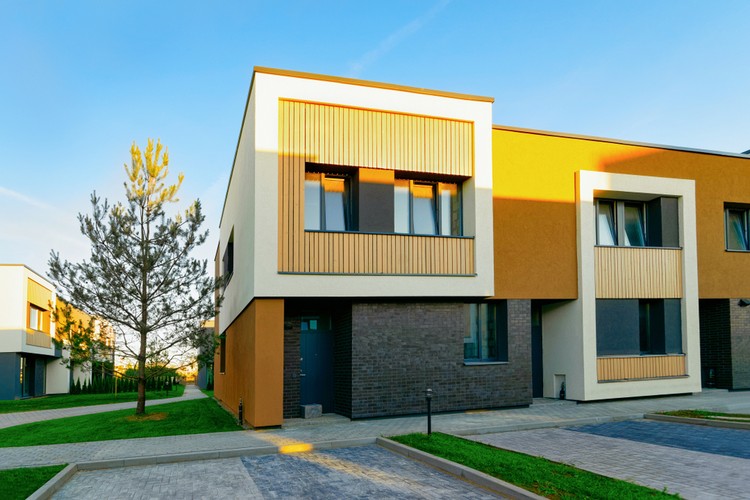The Advantages of Mobile Homes: Affordable Housing for Modern Living
Mobile homes and trailers have become increasingly popular as an affordable housing solution for many individuals and families. This article explores the benefits of mobile homes, their role in residential parks, and how they cater to various demographics, including retirees and those looking to downsize.

One key difference between mobile homes and traditional houses is the construction process. Mobile homes are built to federal standards set by the U.S. Department of Housing and Urban Development (HUD), ensuring consistent quality and safety across different manufacturers. This standardized approach often results in more efficient construction and lower overall costs compared to site-built homes.
How do residential parks accommodate mobile homes?
Residential parks, also called mobile home communities or manufactured home communities, are specially designed neighborhoods that provide spaces for mobile homes. These parks offer a range of amenities and services, creating a sense of community for residents. Some common features of residential parks include:
-
Designated lots for mobile homes
-
Utility connections (water, electricity, sewage)
-
Communal areas such as parks, playgrounds, or community centers
-
Maintenance services for common areas
-
Security measures like gated entrances or on-site management
Residential parks can vary in size and atmosphere, from small, family-oriented communities to larger developments catering to specific demographics, such as retirees or working professionals.
Why are mobile homes an attractive option for retirement?
Mobile homes have become increasingly popular among retirees for several reasons:
-
Affordability: The lower cost of mobile homes allows retirees to stretch their savings further and potentially enjoy a higher quality of life.
-
Low maintenance: Mobile homes typically require less upkeep than traditional houses, which can be particularly appealing for older adults.
-
Community atmosphere: Many residential parks cater specifically to retirees, offering a range of social activities and amenities designed for seniors.
-
Location flexibility: Retirees can choose mobile home communities in desirable locations, such as near beaches, golf courses, or family members.
-
Downsizing opportunity: Mobile homes provide an excellent option for retirees looking to simplify their living situation and reduce their possessions.
How do mobile homes contribute to affordable housing solutions?
Mobile homes play a crucial role in addressing the affordable housing crisis in many areas. They offer a cost-effective alternative to traditional homes, making homeownership more accessible to a broader range of individuals and families. Some key factors contributing to their affordability include:
-
Lower initial costs: Mobile homes are generally less expensive to purchase than site-built homes.
-
Reduced land requirements: Mobile homes can be placed on smaller lots, reducing overall property costs.
-
Energy efficiency: Modern mobile homes are often designed with energy-efficient features, leading to lower utility bills.
-
Flexible financing options: Many lenders offer specialized loans for mobile homes, making financing more accessible.
-
Lower property taxes: In many areas, mobile homes are subject to lower property tax rates than traditional houses.
What are the benefits of downsizing to a mobile home?
Downsizing to a mobile home can offer numerous advantages for individuals and families looking to simplify their lives:
-
Financial benefits: Lower housing costs can free up funds for other priorities, such as travel, hobbies, or savings.
-
Reduced maintenance: Smaller living spaces and modern designs often require less time and effort to maintain.
-
Environmentally friendly: Downsizing typically leads to reduced energy consumption and a smaller carbon footprint.
-
Simplified lifestyle: Less space encourages decluttering and a focus on essential possessions.
-
Increased flexibility: The ability to relocate a mobile home can provide opportunities for lifestyle changes or moves closer to family.
How much does a mobile home typically cost?
The cost of a mobile home can vary significantly depending on factors such as size, features, and location. Here’s a general overview of mobile home prices:
| Type | Size | Average Cost Range |
|---|---|---|
| Single-wide | 600-1,300 sq ft | $30,000 - $80,000 |
| Double-wide | 1,000-2,300 sq ft | $60,000 - $150,000 |
| Triple-wide | 1,600-3,000 sq ft | $100,000 - $250,000 |
Prices, rates, or cost estimates mentioned in this article are based on the latest available information but may change over time. Independent research is advised before making financial decisions.
It’s important to note that these prices typically cover only the home itself. Additional costs may include land purchase or lot rent, utility connections, and any customizations or upgrades. Despite these additional expenses, mobile homes often remain a more affordable option compared to traditional site-built homes in many areas.
Mobile homes and trailers offer a versatile and cost-effective housing solution for a wide range of individuals and families. From retirees seeking a comfortable and social living environment to young families looking for affordable homeownership, mobile homes provide numerous benefits. As the housing market continues to evolve, these manufactured homes are likely to play an increasingly important role in addressing affordability concerns and meeting diverse housing needs.






